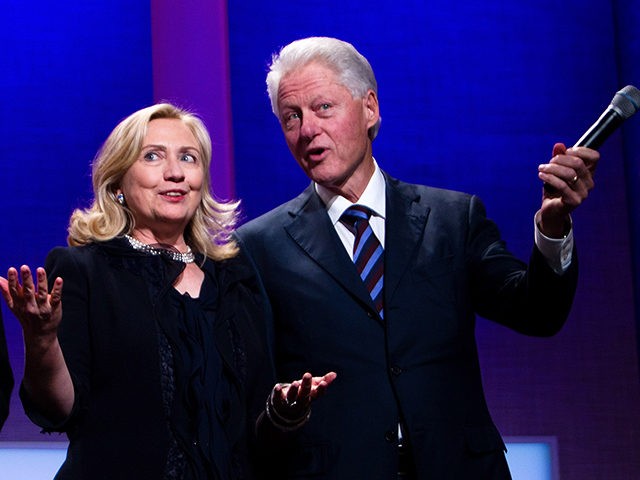Jonah Goldberg of National Review has joined the defense of Hillary Clinton’s involvement in the Uranium One scandal, urging reporters to “know what they’re talking about” before “blithely and irresponsibly” calling for further investigation. Ironically, it is Goldberg’s case that falls flat because of his serious omissions and failure to account for critical facts.
The Uranium One saga is complex, yet centers around a few key facts: Bill Clinton flew to Kazakhstan in 2005 to meet with Frank Giustra, a major Clinton Foundation donor, and the country’s President Nursultan Nazarbayev. During this trip, Giustra secured uranium mining rights in the country, one of the world’s largest uranium producers. (In 2010, the Washington Post reported a Kazakh official’s claim that he was pressured to approve the transaction by then-Senator Hillary Clinton and her staff. That official ended up in jail for his trouble.)
This was the birth of what would become Uranium One and of the Clintons’ relationship with the company. Not long after this trip, Giustra donated $30 million to the Clinton Foundation. The Foundation would ultimately receive $145 million, some of it undisclosed, from parties tied to Uranium One.
In 2009, Rosatom State Atomic Energy Corporation began a plan to purchase Uranium One and its assets around the world. This triggered an approval requirement by the U.S. government’s Committee on Foreign Investment in the United States (CFIUS).
Goldberg says the U.S. uranium assets held by Uranium One are no big deal, but he appears to be oblivious to the fact that CFIUS approval also granted Russia the company’s lucrative uranium assets in Kazakhstan, South Africa, and Australia.
By 2010, as CFIUS was reviewing the purchase, Uranium One had mines around the world, including several in Wyoming, Texas, and Utah. Goldberg focuses on these assets and claims that they are not a very big deal at all. At the time of the CFIUS approval, Uranium One’s U.S. mines were estimated to make up nearly 20 percent of the United States’ recoverable uranium. The uranium market has, since the approval, fluctuated, and production has never come close to that level. Goldberg argues that, as a result, these assets mean very little to either Russian or American national security.
Goldberg never mentions the four ranking members of House committees overseeing national security (Representatives Peter King, Ileana Ros-Lehtinen, Howard McKeon, Spencer Baucus) and Wyoming Senator John Barrasso wrote letters to the Obama administration decrying the deal. Their concerns were well founded: a 2015 New York Times investigation was able to confirm that some of the U.S. uranium made it all the way to Europe and Japan, despite Uranium One’s lack of an export license — another fact Goldberg overlooks. It is entirely unclear what Uranium One’s assets in these other countries might be used for.
More to the point, we now know that a Rosatom subsidiary was bribing its way into the U.S. uranium market at the time of the CFIUS approval. Why were the Russians working in such an aggressive manner if they didn’t view the U.S. uranium market as strategically important?
The Clinton State Department received at least two cables speaking to the fact that Moscow views the control and distribution of uranium as a strategic tool. Indeed, Vladimir Putin himself announced the funding for Rosatom to buy Uranium One. Is Goldberg, who points out uranium sells for “less than $25” per pound, suggesting that the strategic importance of uranium is reflected simply by its market price?
It is true, as Goldberg points out, that Hillary Clinton was only one of nine officials on CFIUS. But this is irrelevant to the question of whether bribery took place. Bribery is not only a crime when the vote is close. Recall that CFIUS by tradition requires unanimous agreement. Furthermore, no other member of the committee had financial ties to the principals who stood to benefit from the deal. And no other committee member had her history of hawkishness on CFIUS related issues.
Goldberg is correct that reporters need to “know what they’re talking about” before “blithely and irresponsibly” commenting on this issue.

COMMENTS
Please let us know if you're having issues with commenting.